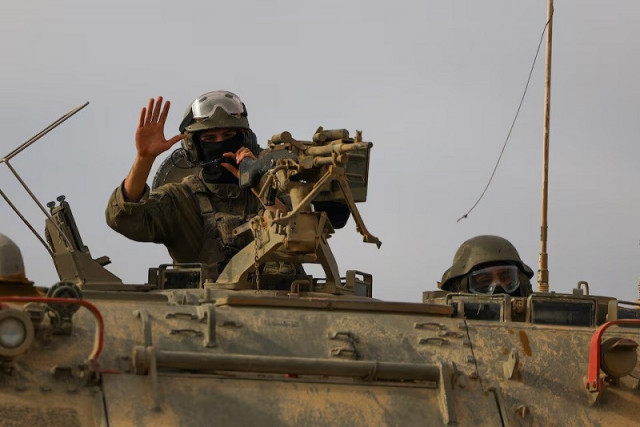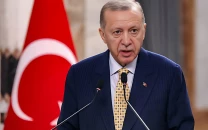Israel boosts defences after Iran revenge threat
On Wednesday, the Israeli military said it had drafted reservists to boost aerial defences

The Israeli military halted leave for all combat units on Thursday amid concerns of a possible escalation in violence after the killing of Iranian generals in Damascus this week drew threats of retaliation.
"In accordance with the situational assessment, it has been decided that leave will be temporarily paused for all IDF (Israel Defence Forces) combat units," the military said in a statement.
"The IDF is at war and the deployment of forces is under continuous assessment according to requirements," it said.
On Wednesday, the military said it had drafted reservists to boost aerial defences. Reuters journalists and Tel Aviv residents said on Thursday that GPS services had been disrupted, an apparent measure meant to ward off guided missiles.
Iran has vowed revenge for the killing of two of its generals along with five military advisers in an airstrike on an Iranian diplomatic compound in the Syrian capital Damascus on Monday.
It was widely believed to be an Israeli attack, one of the most significant yet on Iranian interests in Syria, which Israel has neither confirmed nor denied and which carries the risk of further inflaming the region.
Read also: Iran vows revenge on Israel after Damascus embassy attack
Since then, investors have been on edge. The Tel Aviv Stock Exchange's main TA-125 share index (.TA125) fell another 2.2% on Thursday to extend losses this week to around 4%. The shekel was 0.6% weaker versus the dollar at a 3.73 rate and government bond prices were down as much as 0.4%.
Israel has been pressing its war on Hamas for six months, after the Palestinian group led an attack on southern Israel on Oct. 7, and has also been trading fire almost daily with Iran-backed Hezbollah in Lebanon.
Until now, Iran has avoided directly entering the fray, while supporting allies' attacks on Israeli and US targets.
Amos Yadlin, a former Israeli intelligence chief, said Iran may choose this Friday - the last in the Holy month of Ramazan and Iranian Quds (Jerusalem) Day - to respond to the Damascus strike, either directly or through a proxy.
"I will not be surprised if Iran will act tomorrow. Don't panic. Don't run to the shelters," said Yadlin, a Senior Fellow at the Kennedy School's Belfer Center at Harvard University, citing Israel's aerial defence systems.
"Be tuned for tomorrow and then, depending on the consequences of the attack, it may escalate," Yadlin said.




1725099588-0/BeFunky-(41)1725099588-0-208x130.webp)














COMMENTS
Comments are moderated and generally will be posted if they are on-topic and not abusive.
For more information, please see our Comments FAQ